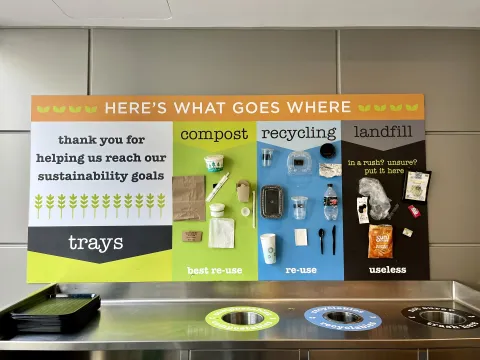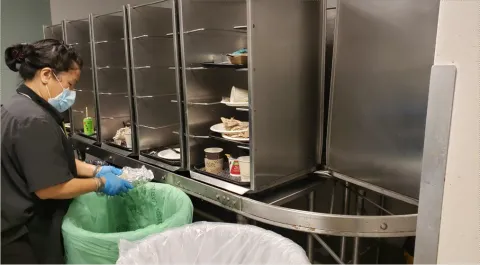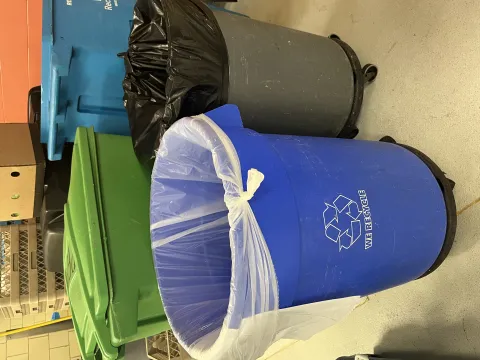Waste Diversion
When efforts to directly reduce or redirect food waste are not feasible, UCSF Nutrition and Food Services takes a crucial final step to prevent foodservice waste from reaching landfills. This involves waste diversion through composting and recycling. When organic materials (like food scraps) end up in the landfill, they break down and release methane, a greenhouse gas that has a stronger global warming potential than carbon dioxide. That is why it is extra important to ensure food waste is disposed of correctly.

Composting and Recycling

UCSF Health has introduced compost bins into break rooms, facilitating the collection of food waste from staff. In the kitchens across UCSF Health, kitchen staff undergo comprehensive training on the most up to date waste sorting standards to guarantee the proper composting of all food waste and the effective capture of recyclable materials. At Mission Bay and Mount Zion, the dining areas are equipped with easily understandable compost, recycling, and landfill bins, complete with clear sorting signage for patrons. Additionally, the Parnassus Moffitt Café has a dedicated sorting team responsible for efficiently managing waste from the dining area.
Oil Recovery
UCSF Health responsibly manages used oil from its kitchens by engaging an external vendor for recovery and recycling processes. This used oil undergoes re-refining, or can be transformed into fuel oil, ensuing a sustainable and environmentally conscious approach to its disposal.

